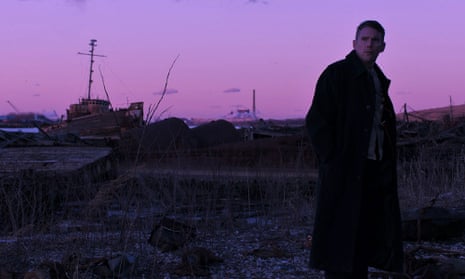First Reformed, in upstate New York, is a tourist-trap church that no one actually attends. Once, long ago, this place served as a way-station on the underground railroad, providing shelter for runaway slaves en route to Canada. Now the church is preserved as a pretty antique, a clapboard white elephant propped up by a Christian conglomerate called Abundant Life and bankrolled by a billionaire industrialist who pollutes the environment. Its planned reconsecration is just a ghastly charade.
An outside bet for the Venice Golden Lion, Paul Schrader’s new drama blows into town like Jesus at the temple. It’s here to call out the hypocrites, railing at the way in which Christianity is deployed as a convenient fig leaf by the resurgent American right, or perhaps as a bizarre form of carbon offsetting whereby a historic church makes amends for a toxic river. First Reformed is a deeply felt, deeply thought picture; impressive in its seriousness and often gripping in the way it frames itself as a debate and a sermon. It is also, crucially, a flawed portrait of a flawed man, at war with its baser instincts and in danger of backsliding. And when Schrader’s hero begins to overheat, his film can’t help but follow suit.
Ethan Hawke stars as Reverend Toller, the haunted whisky priest, unable to prevent the suicide of a local eco-activist and toiling to get the organ fixed ahead of First Reformed’s birthday celebrations. “There won’t be any political talk, will there?” barks Ed Balq (Michael Gaston), the event’s plutocrat saviour, and this rankles with Toller, who is growing worryingly close to the activist’s widow. Is it worth pointing out that the widow is with child and that her name is Mary? Either way, she is played by Amanda Seyfried, who, beyond looking becomingly tragic, is not given a whole lot to do.
The fact that Toller keeps a journal in which he gives voice to his thoughts and quotes the Book of Revelations, makes it tempting to view the film as Schrader’s homage to The Diary of a Country Priest, directed in 1951 by his hero Robert Bresson. The apple never falls too far from the tree, after all, and Toller soon emerges as your classic Schrader surrogate. He’s zealous and wonky, God’s lonesome samurai, cut from the same holy cloth as Yukio Mishima or Travis Bickle. In trying to do the right thing, he risks raining hellfire on us all.
The organ is fixed; the reconsecration is scheduled. First Reformed is poised to celebrate its 250th birthday. By this point, however, the film has taken on a faintly hysterical air, its early rigour and poise a fading memory. Inside his sterile home, Toller splashes Pepto-Bismol in his scotch to calm his stomach pains. He’s desperately Googling news about climate change. He is thrilling to apocalyptic visions of ruined forests and rubbish tips, levitating from the floor in a trance to more efficiently tour the whole blighted planet. And if Schrader can’t find a way to bring his film safely home, what chance does he have of rescuing Toller as well? Has the priest taken leave of his senses, or is he embarking on some mysterious holy mission? On the morning of the service, his hour come around, he slouches towards the pulpit, weighing up a possible rebirth.
First Reformed was showing at the Venice film festival

Comments (…)
Sign in or create your Guardian account to join the discussion